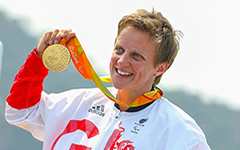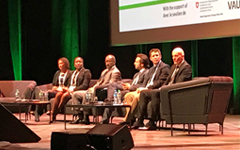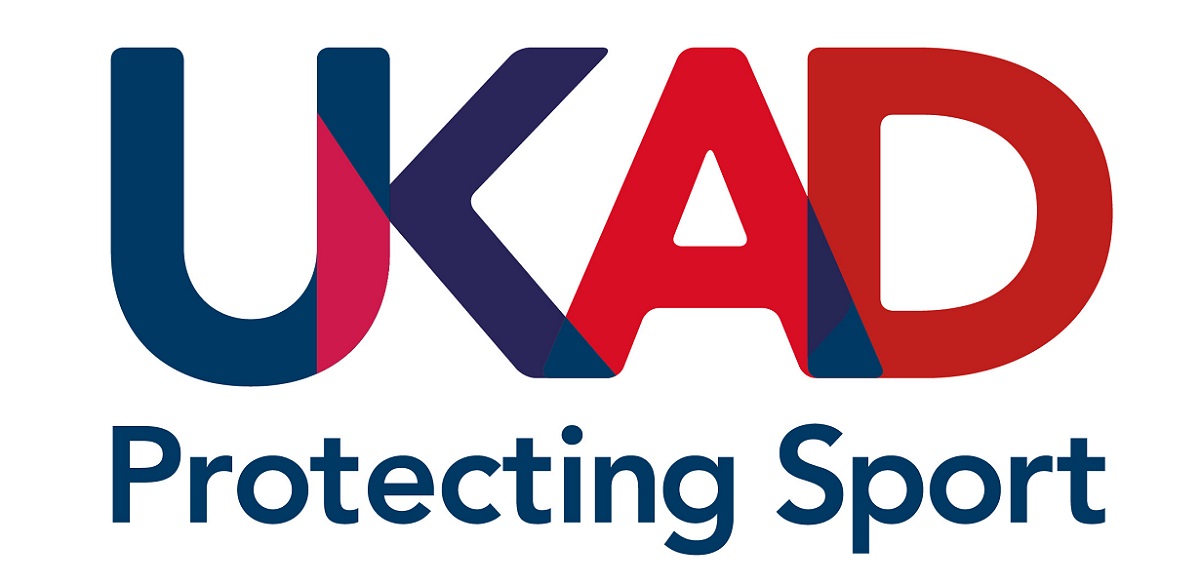BLOG: Retired life and anti-doping campaigning - Callum Skinner
As some of you may know, I recently retired from cycling. This was at the slightly premature age of 26. However, the focus of the British Cycling team and indeed for many sports has always been about Olympic medals and preferably gold ones. Standing on the top step of the podium in Rio it felt like mission accomplished.
Since then I’ve made the transition into working life and continued my campaigning for clean sport. Joining the UKAD Athlete Commission was really the catalyst for this area of interest in my life. It’s a fantastic group of diverse and talented individuals who care about clean sport and want to make a difference. The unified stance of the Commission over the Russian Doping scandal in September 2018 and our letter to WADA asking them to reconsider making RUSADA compliant, saw a mobilisation by British athletes like the sport has never seen. It was started by the UKAD Athlete Commission and all our members ensured that the momentum did not die out.
We didn’t get the decision we wanted but the silver lining was how British athletes had mobilised and how UKAD had provided a supportive environment for athletes to voice their views. International athletes also found their voice; Michael Phelps (USA, swimming), Beckie Scott (Canada, cross country skiing), Sebastian Samuelsson (Sweden, biathlon) and Mack Horton (Australia, swimming) have also become more vocal about some of the positive changes they’d like to see in their respective sports.
In November, the World Anti-Doping Agency (WADA) will elect its new President - Witold Bańka is set to take the reins from Sir Craig Reedie. Ahead of this in September, I will be attending an athlete summit in Poland at the invitation of Witold Bańka along with other athlete committees including, International Olympic Committee, International Paralympic Committee, and WADA. The last year has seen some very public discussion about the role and importance of the athlete voice in anti-doping governance. Athletes are not just another ‘stakeholder group’ but are a group pivotal to maintaining public confidence in clean sport.
Ahead of his appointment, Bańka has shown encouraging early signs that he is looking to engage with athletes and hear their concerns. This could not come at a better time given what we have seen at the recent Swimming World Championships, with Mack Horton and Duncan Scott not taking to the podium in protest against Sun Yang’s attendance at the championships. I hope the pending WADA and Court of Arbitration for Sport (CAS) case in September can bring this to a satisfactory end. Horton and Scott's protest sent a powerful message to sports administrators.
I’ve recently been fortunate enough to find a commercial opportunity that complements my passion for clean sport. In January I became Head of Athlete Safety at the sports nutrition company, Science in Sport. My role is the first of its kind with in the industry. In the 2012 testing year, contaminated substances accounted for 44% positive UKAD tests . At Science in Sport we work very closely with Informed Sport and challenge our staff at our UK-based manufacturing facility to ensure that our supplements are as safe as possible for athletes to consume. My role centres around ensuring that we continue to be industry leaders in providing safe and effective supplements to athletes.
From a voluntary perspective I’ve also been involved in the creation of a new athlete-led body called Global Athlete, whose Director General is Rob Koehler, a prominent former employee of WADA. At this stage, Global Athlete has taken the form of a pressure group but that may change over time as we look to offer the best way to support athlete rights. My personal goal with this organisation is to build on the momentum created by the UKAD Athlete Commission over the Russia scandal.
I am excited by the coming months and the opportunities to highlight how athletes need to be at the heart of sports governance. Giving athletes more prominence in decision-making and embracing the athlete voice needs to be seen as an opportunity and an asset by sports administrators.



